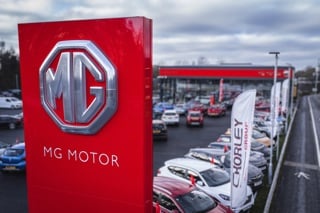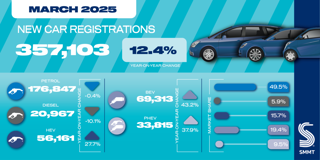The evaluation of the Motor Vehicle Block Exemption Regulation regime has been published by the European Commission, which will decide by May 2023 whether specific rules around new vehicle and parts distribution will continue to be needed.
On the MVBER’s objective to protect competition in the sector, the evaluation found that the intensity of competition in distribution of new cars seems to have increased, although competition in the light commercial vehicle, truck and bus sectors seems weaker.
It also found intra-brand competition, between franchisees, has not decreased as was feared by some and, despite a decline in sales points, dealers have further geographic reach thanks to consumers’ use of the internet.
It noted however that the homogeneity in distribution formats seen prior to 2010 has remained and most cars are still distributed through quantative selective distribution networks.
The report hinted there is still more to be done to protect competition, however, given reservations over weaker competition in the commercial vehicle market and, in the new car market, whole market areas held by dealer groups that may potentially reduce intra-brand competition in that area.
Ahead of the implementation of the current MVBER many independent repairers were concerned about being able to continue competing against vehicle manufacturers’ authorised networks.
So a key objective of Block Exemption was to safeguard their unrestricted access to spare parts, tools, training and technical information, and the evaluation is satisfied that this has been “at least partially achieved”.
Nevertheless, it notes that independents still report difficulties, such as accessing up-to-date information and restrictions on access to in-vehicle data, and therefore finds this objective continues to be relevant when the EC decides on its 2023 regulatory options.
“Much in-vehicle data, or the information derived from it (such as the fact that a vehicle has a particular fault, or needs a routine service), may be considered an essential input for repair and maintenance.”Where such data or information is not available from other sources, and is supplied to authorised repairers, it should therefore also be supplied on an equal basis to independent operators that compete with those repairers,” it states.
The evaluation concludes that there are no signs of market failure or potential consumer harm in the motor distribution sector and therefore it recommends application of the General Block Exemption Regulation here.
As to the motor vehicle repair markets, the evaluation noted that the current MVBER regime has proven to be appropriate and the EV does not therefore consider major change is needed to the existing rules, only updates such as to reflect the importance of access to data.
The European Commission will decide by May 31, 2023, whether to let the current regime lapse, renew it or revise it.
Sue Robinson, NFDA chief executive, said: “The NFDA will now be working closely with members and our regulatory working group to analyse the findings, and with the Alliance of European Car Dealers and Repairers for a full review.”
In 2019 trade bodies urged the EC to consider how to block unreasonable franchise requirements.






















Login to comment
Comments
No comments have been made yet.